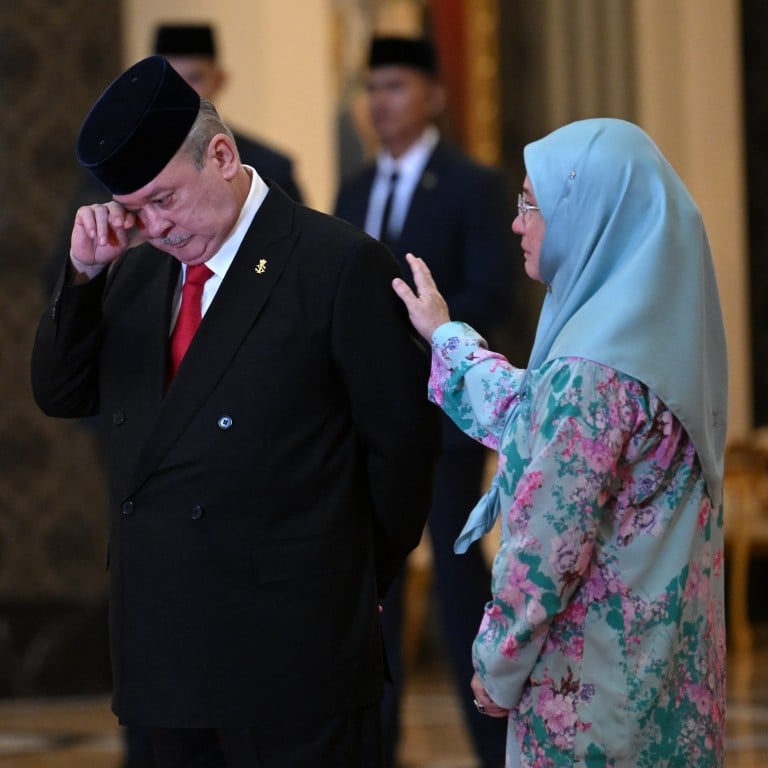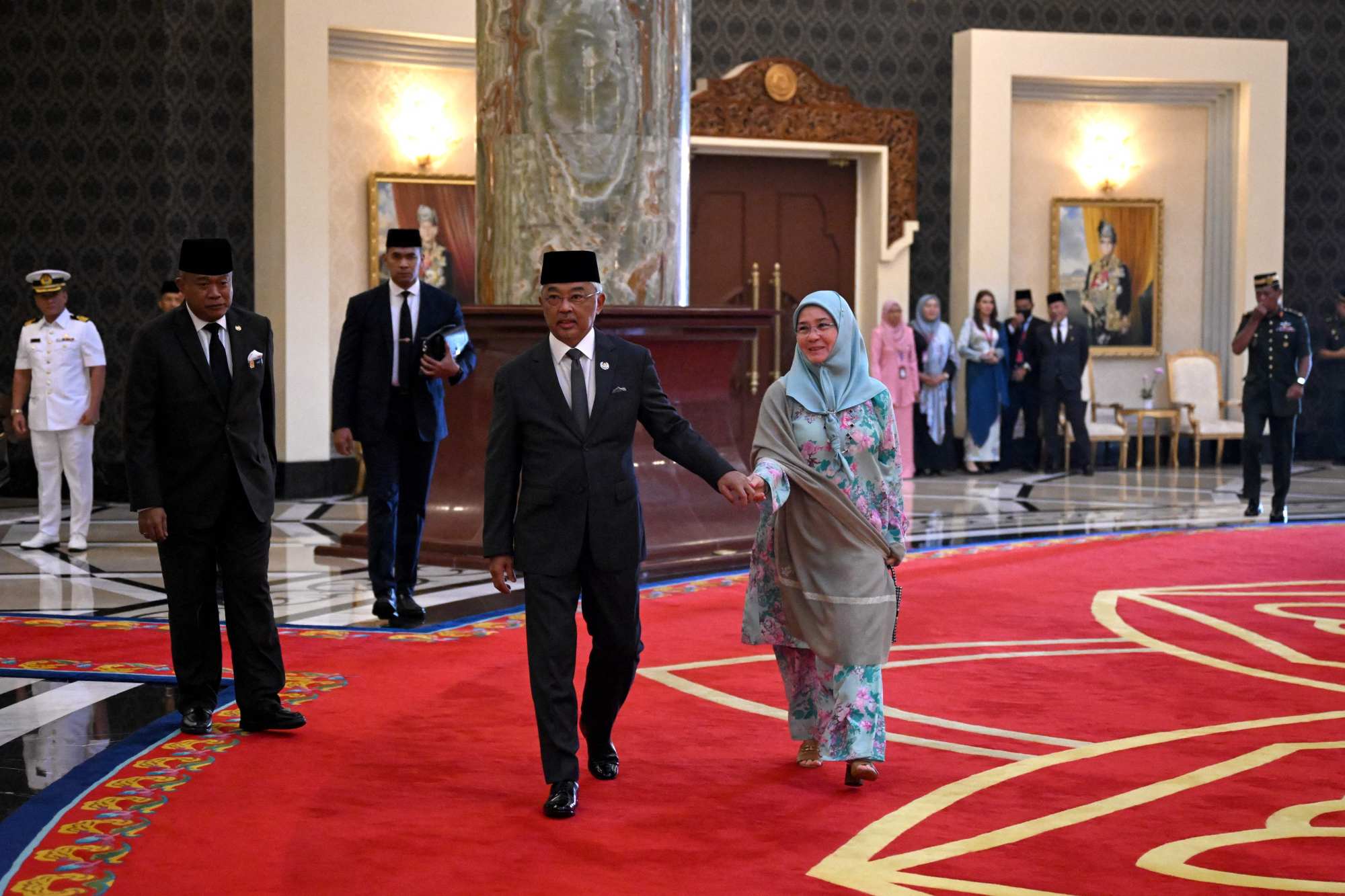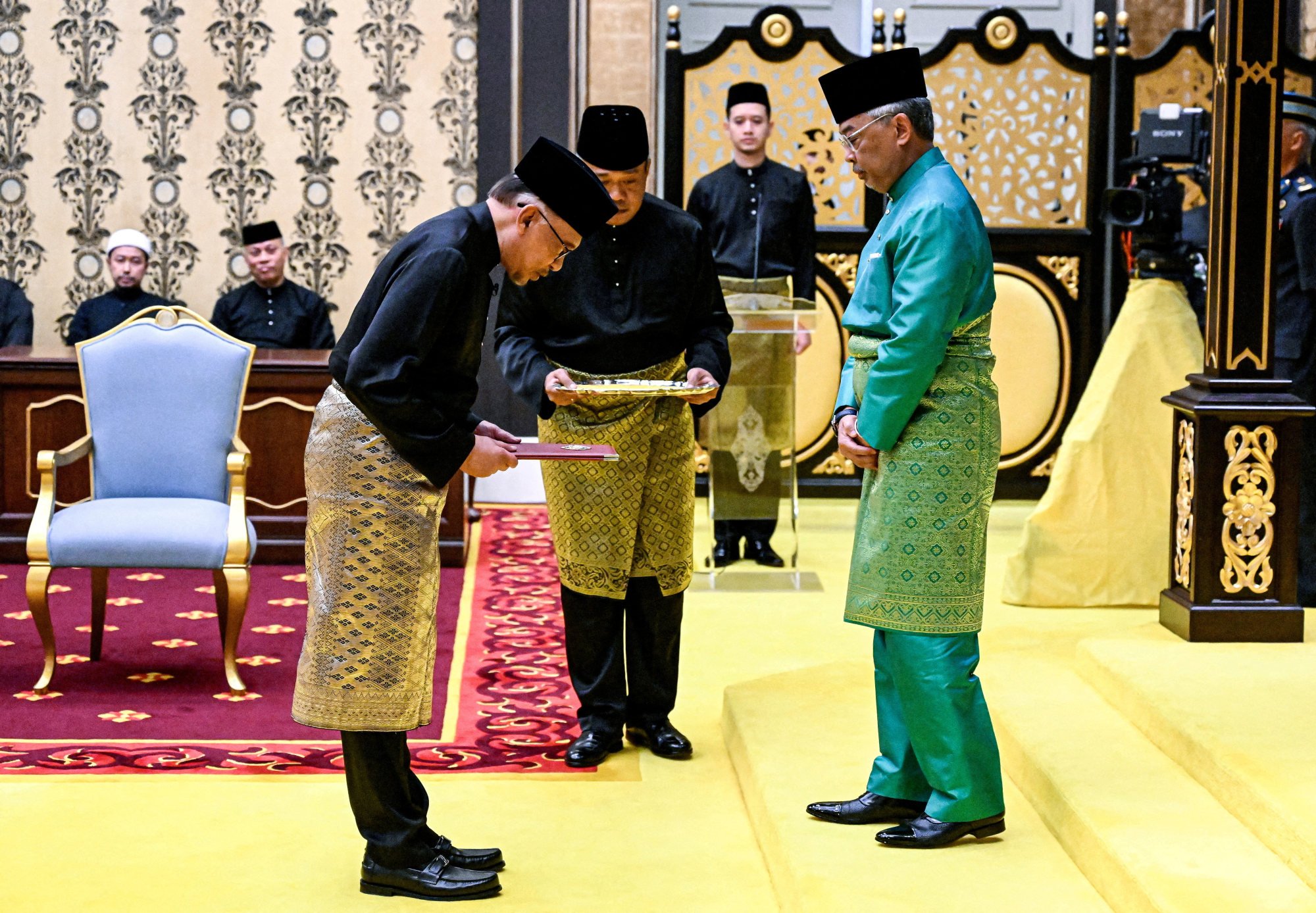
Johor’s Sultan Ibrahim picked as Malaysia’s next king, calls incumbent Sultan Abdullah a symbol of unity
- The influential ruler will replace Sultan Abdullah Sultan Ahmad Shah on January 31 and serve a five-year term
- The incoming king, whose position is largely ceremonial, commended his predecessor for solving multiple social and political crises
The sultan, 64, known for being one of the most outspoken among the nation’s nine Malay rulers, will succeed the incumbent Sultan Abdullah Sultan Ahmad Shah on January 31 and serve a five-year term.
“The Conference of Rulers in its 263rd meeting [today] agreed to promulgate that Sultan Ibrahim of Johor has been picked as the 17th Yang di Pertuan Agong, for a term of five years from Jan. 31, 2024,” said Syed Danial, the Keeper of the Rulers’ Seal in a statement. The council met for three days since Wednesday to discuss this and other relevant matters.
Malaysian government will ‘defend’ royals against insults: PM Anwar
Observers say the role of the Malaysian king has steadily gained political influence, especially during the reign of Sultan Abdullah. The monarch presided over one of the most tumultuous times in the nation’s politics – having seen four prime ministers during his term.
On two occasions, in 2020, and again last year, he played a key role to mediate between political factions and facilitate the appointment of a prime minister with adequate legislative backing.
Sultan Ibrahim will be the second sultan of Johor to be appointed Yang di Pertuan Agong. His father Sultan Iskandar served in that position from 1984 to 1989.
His great-grandfather, the previous Sultan Ibrahim, declined the offer to be Malaysia’s first king in 1957 despite being the most senior monarch at the time.
Nine of Malaysia’s 13 states have royal courts dating back centuries. These households are mandatorily led by a male who is a Malay and a follower of Islam.
Of these, seven leaders are styled “sultans”, like Arabic sovereigns, while the ruler of the state of Perlis bordering Thailand is a raja. In Negeri Sembilan, the monarch is appointed for life by four chieftains and is called Yang di Pertuan Besar, or grand ruler.

The heads of the nine royal households take turns serving five years as Yang di Pertuan Agong. They, along with the appointed governors of the country’s four non-royal states, make up the Conference of Rulers.
The governors are not eligible for the role of king. While largely a ceremonial position, the king does have constitutional powers that he largely has to exercise on the advice of the federal cabinet. This involves decisions on the appointment of senior public officials, including the prime minister.
In a rare insight into the opaque process of the Conference of Rulers at the National Palace, the Keeper of the Rulers’ Seal – as secretaries to the monarchs – publicly released the text of Sultan Abdullah’s speech in the meeting to his fellow royals where he stressed that the institution is not merely symbolic.
“The institution of the Yang di Pertuan Agong is the defender of democratic practices, the central pillar to national peace and the heartbeat of national unity,” said Sultan Abdullah on Thursday.
Malaysia’s Johor sultan lends support for an economic zone with Singapore
Sultan Ibrahim, in his remarks, paid tribute to the role the incumbent king had played not just as a political stabilising force but as a symbol of unity.
This was acknowledged by Sultan Ibrahim, who chaired the Conference of Rulers’ meeting, in his response to Sultan Abdullah’s speech.
“Your success is not only in solving political crises but also in the way you interacted with the people,” he said.

Sultan Ibrahim raised the example of Sultan Abdullah and Queen Tunku Azizah Aminah Maimunah Iskandariah’s 2,154km tour of the nation’s two Borneo territories of Sabah and Sarawak. The couple were flocked by hundreds of people throughout the 11-day trip in September.
“[The tour] succeeded in bringing the relationship between the king and the people closer, and increasing the loyalty of the people to the King and the State,” Sultan Ibrahim said.
Malay sociologist Awang Azman Awang Pawi described Sultan Abdullah’s rule as the most consequential in the country’s history.
“Facing political turmoils under his reign, he succeeded solving all these issues well and responsibly,” he said.

